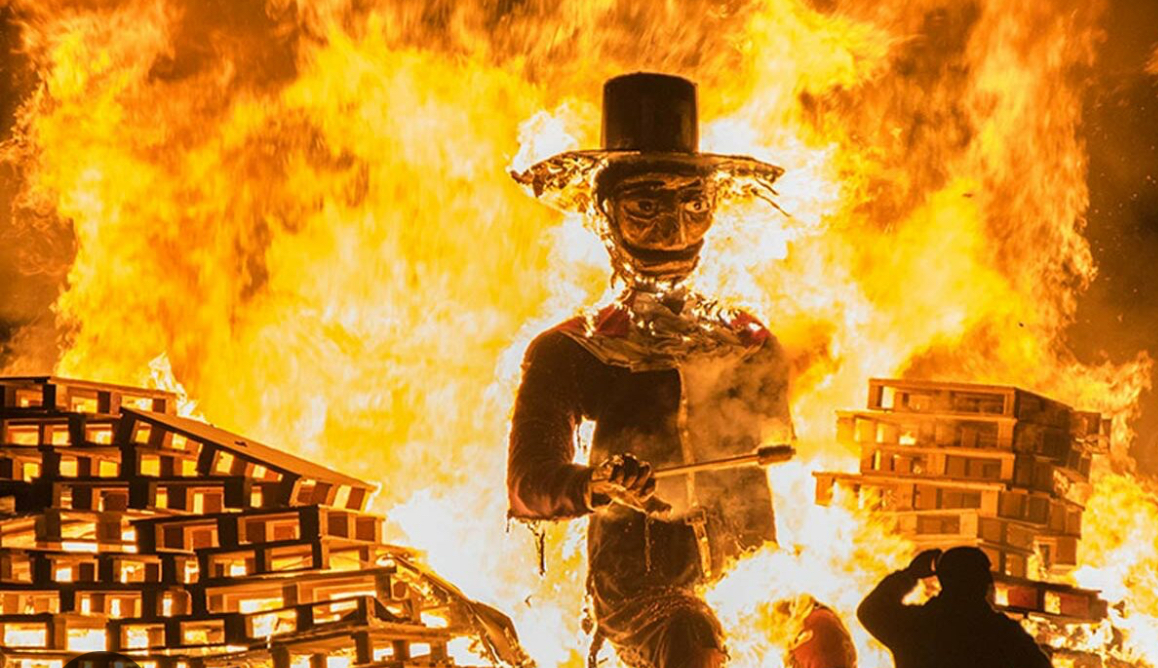Updated on November 5, 2024
Guy Fawkes Night
Guy Fawkes Night makes an annual appearance in the English calendar every 5th of November, inviting revellers to light bonfires and fireworks across the nation as the autumn officially kicks in. But the roots of this centuries-old tradition is much more than an evening of sparks and illumination.
What Do People Do?
Many people light bonfires and set off fireworks. As it is the end of autumn, it is the ideal opportunity to burn garden rubbish. Some light small bonfires in their own gardens, while other light larger ones in a communal space. In some towns and cities, the municipality organizes a bonfire and professional firework display in a park. These tend to be very popular. Due to its proximity to Halloween, many people organize a combined party for Guy Fawkes Night and Halloween. These parties often include elements from both festivals, such as a bonfire and dressing up in spooky outfits. Popular foods include toffee apples, bonfire toffee and potatoes baked in the ashes of the fire. Guy Fawkes, a Catholic, was arrested, tortured and executed for his part in the plot to blow up the Houses of Parliament. Hence many Catholics are more restrained in their celebration of this day. In addition, many injuries and even deaths occur as a result of fireworks being used incorrectly. For this reason, many safety campaigners call for the sale of fireworks to the public to be restricted even more than at present and for more professional displays to be organized.
Public Life
Guy Fawkes' Day is not a public holiday. Businesses, organizations and schools are open as usual. Public transport services run to their normal timetables. Some organizations, communities and municipalities may organize public bonfires or displays of fireworks on or around November 5.
Background and symbols
Guy Fawkes Night celebrates the failing of an attempt to blow up the Houses of Parliament in London on November 5, 1605. The attack was planned by a group of Catholic conspirators, which included Guy Fawkes. The explosives would have been set off when King James I of England (King James VI of Scotland) and many parliamentary members were in the building. The conspirators were later arrested, tortured and executed.
If you want to learn more, read about it on Wikipedia.
 Have you heard about Guy Fawkes Night before? Does it remind you of any customs/traditions in Greece?
Have you heard about Guy Fawkes Night before? Does it remind you of any customs/traditions in Greece?


